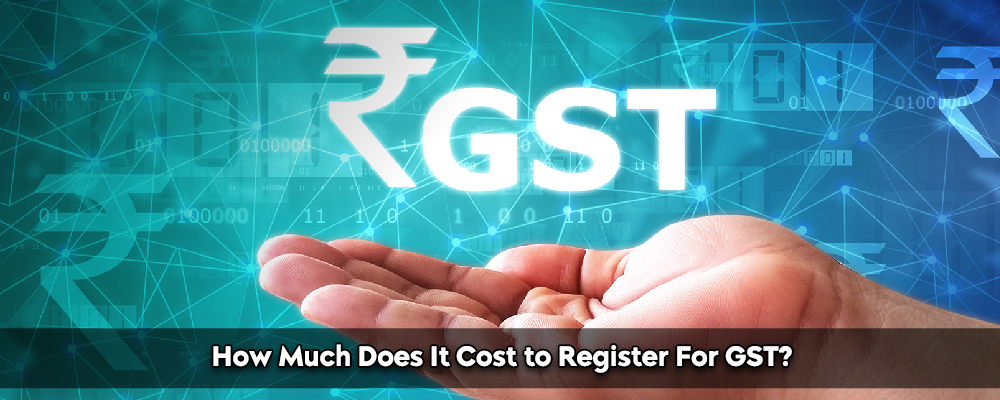In India, the Goods and Services Tax (GST) is a revolutionary tax reform designed to streamline the indirect taxation framework. The GST regime streamlines and improves business-friendliness by combining multiple indirect taxes into one cohesive tax structure. The GST registration process is an essential step for companies doing business in India.
Need A Legal Advice
The internet is not a lawyer and neither are you. Talk to a real lawyer about your legal issue

Why is it Important to Register GST?
Legal Requirement
GST registration is mandatory for businesses whose aggregate turnover exceeds the prescribed threshold, as per the GST laws in India.
Legitimacy and Credibility
Having a GST registration adds credibility to a business, signalling that it operates within the legal framework and is compliant with tax regulations.
Access to Input Tax Credit (ITC)
Registered businesses can avail themselves of the benefit of claiming Input Tax Credit, which allows them to offset the tax paid on inputs against the tax liability on output, reducing the overall tax burden.
National and International Trade
GST registration is often a prerequisite for participating in national and international trade. It facilitates seamless transactions and ensures a level playing field for businesses.
Avoidance of Penalties
Failure to register for GST when required can lead to penalties and legal consequences. Registering on time helps businesses avoid such issues.
Government Contracts
Many government tenders and contracts require businesses to be GST registered. This registration becomes a key factor in eligibility for government projects.
Interstate Transactions
For businesses involved in interstate transactions, GST registration is essential. It enables compliance with the Integrated Goods and Services Tax (IGST) regulations.
Online Marketplaces
E-commerce platforms often mandate GST registration for sellers. Without it, businesses may not be able to sell their products on these platforms.
Compliance with Law
GST registration ensures that a business complies with the prevailing tax laws, promoting a transparent and lawful business environment.
Business Expansion
GST registration is a facilitator for business expansion. It opens doors to new markets and collaborations, both nationally and internationally.
GST Registration Procedure
The registration process is primarily online and involves a series of steps. Here’s a brief overview:
Eligibility Criteria
- Businesses whose aggregate turnover exceeds the prescribed threshold limit are required to register for GST.
- The threshold limits for GST registration differ for goods and service providers.
Documents Required
- PAN card of the business or individual.
- Aadhar card.
- Proof of business registration or incorporation.
- Bank statements.
- Address proof of the place of business.
Online Application
- The applicant needs to visit the GST portal and fill in the required details in the GST REG-01 form.
- Following submission, an Application Identification Number is produced..
Verification
The GST authorities verify the application and may ask for additional documents or information if needed.
Approval
A certificate of GST registration is issued following a successful verification process.
Costs Involved in GST Registration
Professional Fees
- Many businesses opt to hire professionals, such as chartered accountants or GST consultants, to assist with the registration process.
- The professional fees can vary based on the complexity of the business structure and the services provided.
Government Fees
When registering for GST, there is no cost. Businesses that generate more than Rs. 20 lakhs in revenue annually are required to register for GST.
Documentation of GST Costs
Collecting and preparing the necessary documents for GST registration may involve some costs. For example, obtaining notarized copies of certain documents or acquiring additional documents if they are not readily available.
IT Infrastructure
Businesses need a robust IT infrastructure to facilitate online registration. This includes a computer system, internet connection, and necessary software tools.
Compliance Costs
After registration, businesses need to comply with various GST regulations, such as filing regular returns. The cost of ensuring compliance, including hiring professionals for filing returns, needs to be considered.
Training Costs
Training staff on GST compliance and procedures may be necessary, especially for businesses transitioning from the previous tax regime to GST.
Miscellaneous Costs
Other miscellaneous costs may include any unforeseen expenses related to the registration process, such as travel expenses if physical verification is required.
Registering for GST in India is a crucial step for businesses, and understanding the associated costs is essential for effective financial planning. While the government fees for registration are standardized, businesses should carefully consider additional costs, such as professional fees and compliance-related expenses. It’s advisable to seek professional guidance to navigate the registration process smoothly and ensure ongoing compliance with GST regulations.
As the taxation landscape is subject to changes, it is recommended to check the latest updates and fee structures on the official GST portal or consult with a tax professional for the most accurate and up-to-date information.
One can talk to lawyers from Lead India for any kind of legal support. In India, free legal advice online can be obtained at Lead India. Along with receiving free legal advice online, one can also ask questions to the experts online free through Lead India.





 Talk to a Lawyer
Talk to a Lawyer